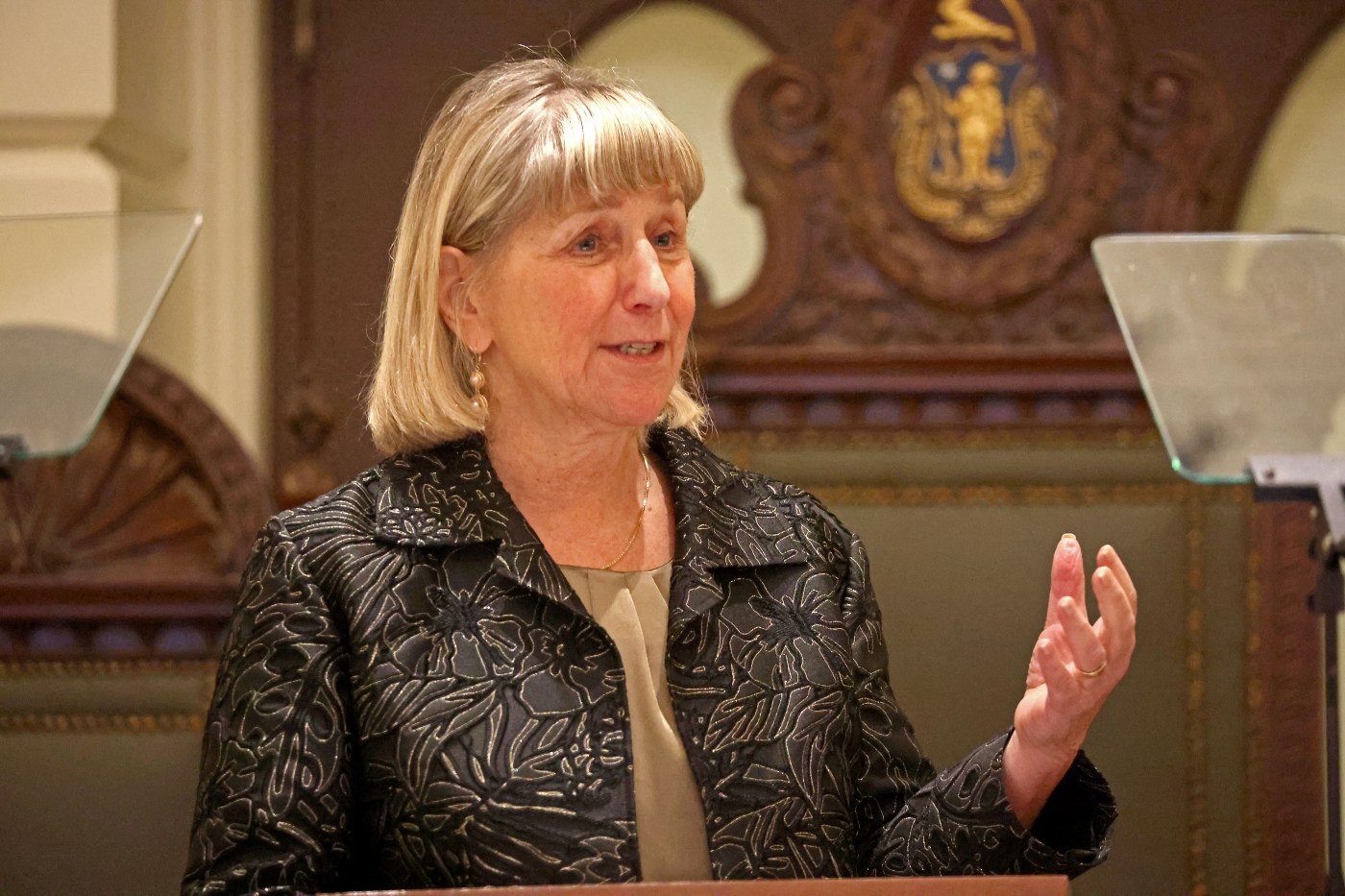
Senate President Karen Spilka says she does not support Healey’s prescription drug tax
Senate President Karen Spilka said she does not support Gov. Maura Healey’s attempt to resurrect a tax on prescription drugs in the fiscal year 2026 budget, a stance that marks another setback for a measure the governor said could raise more than $100 million for state coffers.
Spilka’s opposition to Healey’s plan to revive a pharmacy assessment on prescription drugs sold in Massachusetts surfaced about a week after House Speaker Ron Mariano said his chamber would not include any new taxes on prescription drugs in their fiscal year 2026 spending plan.
After an unrelated event Monday afternoon at the State House, Spilka said “no” when asked if she personally supported Healey’s effort to include the pharmacy assessment in the budget for the next fiscal year.
“I have heard some concerns,” Spilka told the Herald. “I think at this point in time we should … not be going down the path of that kind of tax. I don’t think it’s right, right now.”
Spilka also threw cold water on other tax increases the governor worked into her fiscal year 2026 budget proposal, like applying the sales tax to candy purchases.
“I haven’t heard from many senators who want to include (the pharmacy assessment), or the candy tax, or some of the other taxes,” the Ashland Democrat said.
Healey included the pharmacy assessment in her $62 billion fiscal year 2026 budget as a way to raise an estimated $145 million by charging pharmacies $2 or 6% per prescription, whichever is less.
The money raised from the tax would fund MassHealth and help prevent pharmacies from closing in low-income neighborhoods, Healey administration officials have said.
But the proposal has generated fierce pushback from critics who have argued it could create cost burdens for people who rely on medication to carry out their daily lives.
A Healey spokesperson did not immediately respond to a request for comment Monday about Spilka’s opposition to the idea.
At a pharmaceutical conference last week, Mariano said House lawmakers would not include “any taxes on prescription drugs in our budget.”
“That means no arbitrary taxes tied to a drug’s list price, or on our consumers filling prescriptions,” the Quincy Democrat said.
The governor also pitched taxing prescription drug manufacturers for “excessive” price increases, a move the Healey administration said could bring in another $60 million. That idea also faced skepticism at a legislative hearing earlier this month.
Rep. Ann-Margaret Ferrante, a Gloucester Democrat, asked Healey how the penalty on excessive drug pricing would not be transferred onto consumers.
“One accomplishment that we didn’t mention last year that we did was the containment of some prescription drugs for patients and consumers that lowered costs dramatically. And some of my constituents are concerned that that’s going to be negated by a transfer of penalty back to the patient or consumer when they pick up their prescription drugs,” Ferrante said to Healey.
Healey said she wants to make sure “people have access to care” as pharmacies close in neighborhoods across the state.
“Part of what the thought is, is to think about ways to ensure that more pharmacies stay in place. It is not to pass on costs to people who, right now in Massachusetts, can’t afford prescription drugs, can’t afford health care that they need,” Healey told Ferrante.
Materials from the State House News Service were used in this report.


